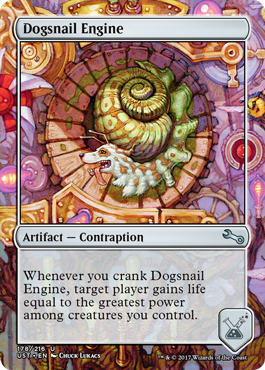

The creature having more damage than toughness is not an action, it's a state.

The sending to the graveyard is an action. One SBA is checking whether the total damage is greater than or equal to the toughness, and if so (assuming it's not indestructible), sending the creature to the graveyard. Damage and stats are states, not actions. "SBA" refers to actions taken on the basis of the state, not the state itself. The term is SBA, for State Based Actions. Your draw on an empty library which I replace with winning the game."ĭo state-based effects refer to combat damage and creature stats, such as the amount of remaining health of the creature? Then, SBA's are checked and the game says "you drew the last card on your library, you lose the game" but the Maniac says "before that, my ability triggers. Also, if a SBA would trigger an effect, much like when playing lands or turning a morph face-up, only the trigger is put on the stack.Į.g.: I control a Laboratory Maniac and I draw the last card on my library. Then, before and after each time it resolves, SBA's are checked.Īs you can see, SBA's are quite the invisible ones as you don't usually declare them being checked through the game. SBA's are checked, I'd draw a card due to Niv's ability, SBA's are checked, then the Windfall would be resolved, I'd discard three cards and draw three cards, Niv's ability would be put thrice on the stack and then SBA's are checked. The thing is, state-based actions (SBA) do not use the stack unlike effects, and they always take priority whenever they're checked (which is every time when resolving a spell or ability).Į.g.: I control a Sage of Ancient Lore and a Niv-Mizzet, Parun, and my opponent casts a Windfall while I have two cards in hand. A creature with at least as much damage as toughness is destroyedīasically, state-based actions are what cause things like taking to much damage to actually destroy a creature.A creature with 0 or less toughness is moved to the graveyard (does not count as destroyed).A player who tried to draw from an empty library loses the game.A player with 10 or more poison counters loses the game.A player with 0 or less life loses the game.Without listing all 24 of them, because that isn't generally useful for a new player, the common state-based actions that you encounter all the time are things like: There is a list of a total of 24 things that the game checks for (though the last 5 only happen in special types of games, like Commander or Two-Headed Giant, so only 19 things in a normal game). State-based actions are things that the game causes to happen automatically.Įach time a player would get priority (when a player is able to act), the game first checks to see if there is anything that needs to happen. Other objects such as permanents on the battlefield can have activated, triggered, or static abilities.


Spell abilities only appear on instants and sorceries, and while instants and sorceries can have all four types of abilities, the overwhelming majority of instants and sorceries have only spell abilities. Static ability: creates a continuous effect that is always active.Triggered ability: creates an ability on the stack whenever a specific event happens.Activated ability: pay a cost do put an ability on the stack.Spell ability: an effect that happens as an instant or sorcery spell resolves.Whenever a spell or ability has finished resolving, the active player (the player whose turn it is) gets priority, which, as mentioned above, causes state-based actions to be checked first.Ībilities are represented by the text on cards. As you noted, they resolve in reverse order and have effects such as dealing damage or drawing cards. Spells and abilities on the stack (not effects) are just that.
#Mtg when cast effect stack full#
You can find the full list of state-based actions in section 704 of the Comprehensive Rules. Among others, they make players lose to lack of life points, cause creatures to die to lethal damage or zero toughness, make you put identical legendaries into the graveyard, and kill auras that are not attached to anything. State-based actions are a set of rules that are automatically checked throughout the game, specifically whenever a player would gain priority (the right to take actions like casting spells, playing lands, etc.). Generally, if you want to learn about the rules in-depth, you can check the current, official rules, either the basic rulebook, or the comprehensive rules that include everything but are intended to be read to look up specific details rather than from beginning to end.


 0 kommentar(er)
0 kommentar(er)
